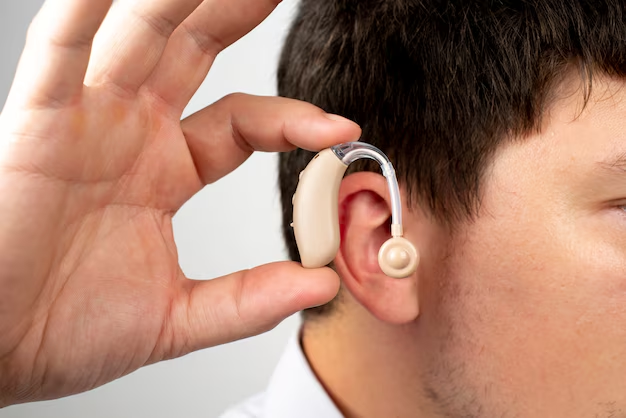
When we think about hearing loss, we tend to focus on the ears. It might be the muffled sound of a friend speaking, the difficulty of following a movie, or the need to ask people to repeat themselves. But hearing is only one part of the story. Behind the scenes, your brain is doing the real work—decoding, interpreting, and making sense of the world of sound.
As science continues to evolve, one thing has become increasingly clear: hearing health is fundamentally linked to brain health.
Hearing Starts in the Ear, But It Happens in the Brain
Your ears are remarkable instruments that collect sound waves and convert them into signals. But they don’t understand those signals. That job belongs entirely to your brain.
When hearing declines—whether gradually due to age or suddenly due to illness or noise exposure—your brain receives incomplete or distorted information. It has to work harder to fill in the blanks, guessing at what was said or what sound was made. This added mental strain is known as increased cognitive load, and over time it can lead to fatigue, memory lapses, and trouble concentrating.
The Overlooked Connection Between Hearing Loss and Cognitive Decline
A growing body of research is showing a powerful link between untreated hearing loss and the development of dementia and other cognitive disorders. A major study published in The Lancet identified hearing loss as the leading modifiable risk factor for dementia in midlife.
So, how are the two connected?
- Auditory deprivation: Less stimulation to the auditory system can lead to reduced activity in parts of the brain responsible for hearing and language, which may accelerate cognitive decline.
- Cognitive overload: When the brain must devote more effort to interpreting poor sound signals, it has fewer resources for other tasks like memory and decision-making.
- Social isolation: Hearing loss often causes people to withdraw from conversations, meetings, and social events—reducing important social and cognitive stimulation.
Together, these factors create a cascade effect that impacts far more than communication—it affects independence, mental health, and quality of life.
Can Hearing Aids Really Help Protect the Brain?
Fortunately, there is strong evidence that addressing hearing loss early can have a positive effect on cognitive performance and emotional well-being.

Studies have shown that individuals who use hearing aids may experience:
- Improvements in memory and attention.
- Greater ease in social interactions.
- Lower levels of depression and anxiety.
- A slower rate of cognitive decline compared to those who do not treat their hearing loss.
The brain responds positively when it receives clearer and more accurate auditory input. With modern hearing technologies and therapy, it’s possible to maintain sharper thinking and a better quality of life.
The NeuroAudiology Perspective
This holistic view of hearing is central to the field of neuroaudiology, which focuses on the interplay between the ears, the brain, and the nervous system. Rather than treating the ears in isolation, neuroaudiologists aim to understand how hearing affects—and is affected by—cognitive and neurological health.
Clinics like NeuroAudiology Australia integrate traditional audiology with cognitive and neural assessments, offering:
- Personalised diagnostics that go beyond simple hearing tests.
- Cognitive screenings to understand the broader impact of hearing issues.
- Integrated care plans developed in collaboration with neurologists and allied health professionals.
Final Thoughts
Hearing loss is more than just an ear issue—it’s a brain issue. It affects how we communicate, connect, think, and remember. Understanding and addressing the full impact of hearing changes is essential not only for communication but also for long-term brain health.
If you or a loved one is noticing signs of hearing difficulty, don’t ignore it. Early diagnosis and intervention can do more than improve your hearing—they may help protect your mind as well.

